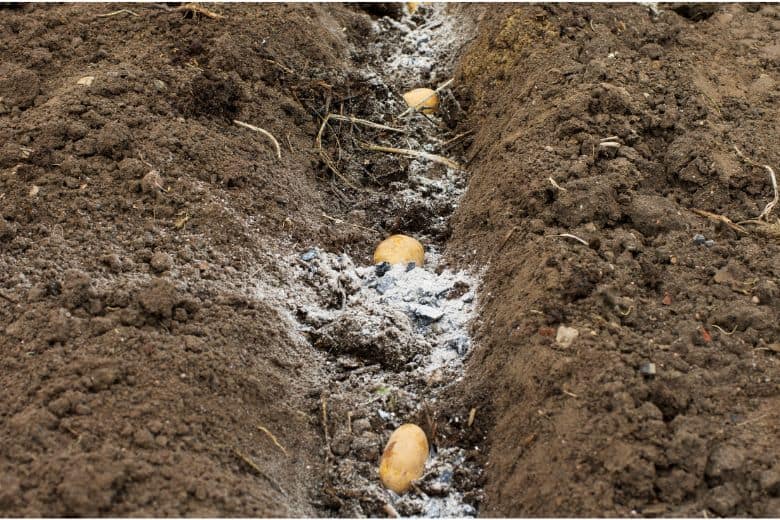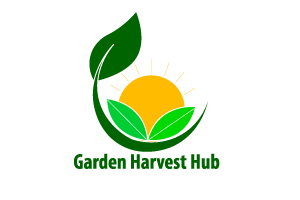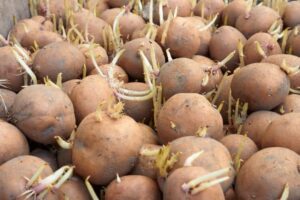
Potatoes are a popular root crop and a favorite vegetable for many households. The key to growing healthy, big potatoes is to provide them with plenty of nutrients and an optimal soil environment. Using the best fertilizer for potatoes is essential to ensure the best yields and the highest quality of potatoes. The best fertilizer for potatoes should be high in nitrogen, phosphorus, and potassium, as well as other essential nutrients. Additionally, a balanced fertilizer should be used to help promote healthy root growth and provide the potatoes with the necessary nutrients for maximum yield. Finally, using a slow-release fertilizer is beneficial since it provides the potatoes with nutrients over a longer period of time.
Types of Fertilizer for Potatoes
Potatoes are a versatile and nutritious part of any diet. To ensure that you are getting the most out of your potatoes, you need to fertilize them properly. Different types of fertilizers can be used to provide the right amount of nutrients to help your potatoes reach their full potential. Organic fertilizers, such as compost, manure or bone meal, are a great choice for potatoes. Synthetic fertilizers, like ammonium nitrate, are also effective in providing the necessary nutrients for optimal growth. Additionally, balanced fertilizers, which provide the right combination of nitrogen, phosphorus and potassium, are great for providing a complete nutrient package for your potatoes. With the right fertilizer, you can achieve larger and healthier potatoes with higher yields.
Benefits of Fertilizing Potatoes
Fertilizing potatoes is an important part of successful potato cultivation. The right fertilizer can make the difference between a bountiful harvest and a disappointing yield. Fertilizing potatoes provides a number of benefits, including improved soil fertility, increased tuber size, and a higher yield. It also helps to ensure the potatoes have the right balance of nutrients needed for a healthy crop. In addition, fertilizing potatoes can reduce the need for additional pest control measures, since healthy plants are less susceptible to pests. By fertilizing potatoes, you can ensure that you reap the rewards of a delicious and nutritious crop.
Preparing Soil for Potatoes
Having a successful harvest of home-grown potatoes starts with preparation of the soil. Before planting, it is essential to ensure the soil is in the best condition for the potatoes to thrive. To begin, the soil needs to be tested to determine the pH level and nutrient content. After testing, any necessary amendments such as lime or fertilizer can be added to the soil to bring it to the desired level. It is important to ensure the soil is loose and free of any debris, weeds, or rocks. Additionally, the soil should be tilled at least 8-10 inches deep to ensure the potatoes have enough space to grow. With the right soil preparation, you can ensure your potatoes will have the best chance of producing a successful crop.

Applying Fertilizer to Potatoes
Fertilizer can be a great way to provide essential nutrients to potatoes, allowing them to reach their full potential. Applying fertilizer to potatoes helps improve their growth, yield, and quality. It also helps reduce the risk of disease and pest infestation. When applying fertilizer, it is important to use the right type and amount for your potatoes. Too much fertilizer can lead to nutrient deficiencies or even damage the plant. Additionally, it is important to apply fertilizer at the right time of year and in the right amounts. Following these guidelines will help ensure that your potatoes have the nutrients they need to produce a healthy, bountiful crop.
Fertilizing at Different Growing Stages
Fertilizing is an essential part of successful gardening, and it is important to understand the different stages of growth to ensure that your plants are receiving the nutrients they need. Fertilizing at different growing stages can help your plants reach their full potential, whether you’re growing vegetables, flowers, trees or shrubs. By applying the proper nutrients to your plants, you can help them thrive and create a beautiful outdoor space. Fertilizing early on in the season helps promote root growth and establish a strong foundation for the plant. As the season progresses, fertilize again to help promote growth and flowering. Throughout the season, continuing to fertilize your plants will ensure that they stay healthy and vibrant. Knowing when and how to fertilize your plants is an important part of successful gardening, so understanding the different growing stages and the necessary nutrients can help you create the garden of your dreams.
Troubleshooting Common Potatoes Fertilizer Problems
Potatoes are a nutritious and delicious staple of many diets. However, providing them with the right fertilizer can be a challenge. This blog post will provide readers with tips and tricks to troubleshoot common potato fertilizer problems. We’ll look at the right nutrients to use, the proper application techniques, and how to avoid problems like fertilizer burn and nutrient deficiency. With this advice in mind, you’ll be able to get your potatoes the nutrients they need for an optimal growing season.
FAQs About the What Is The Best Fertilizer For Potatoes
What type of fertilizer is best for potatoes?
Answer: Potatoes prefer a balanced fertilizer, such as 5-10-10 or 10-10-10. Fertilizers with higher nitrogen content, such as 10-20-10, can encourage foliage growth at the expense of tuber production.
When should I fertilize my potatoes?
Answer: It is best to fertilize potatoes when they first begin to sprout and then again at mid-season. Be sure to follow the instructions on the fertilizer package for the correct rate.
How often should I fertilize my potatoes?
Answer: Fertilize potatoes once every two weeks during the growing season. Be sure to water the soil after applying the fertilizer to help it reach the roots.
Conclusion
In conclusion, the best fertilizer for potatoes will depend on the soil type, climate, and other environmental factors. The best approach is to find a balanced fertilizer that contains a mixture of nitrogen, phosphorus, and potassium. Adding compost and organic matter to the soil is also important for providing the necessary nutrients for healthy potato plants.







